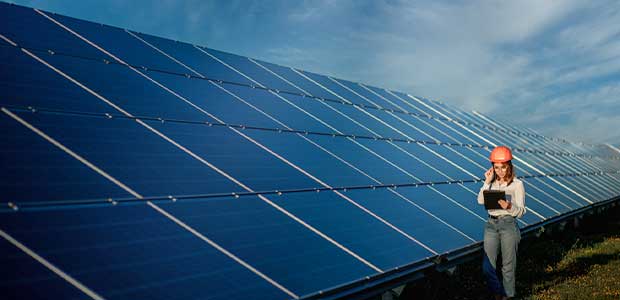How Solar Power Can Aid You Conserve Cash and Decrease Your Carbon Impact
The combination of solar power right into your power profile provides a compelling possibility for both monetary savings and environmental stewardship. As different government motivations become available, the inquiry emerges: exactly how can one efficiently navigate the preliminary financial investments and continuous advantages of solar innovation to make the most of both financial and ecological gains?
Recognizing Solar Power Cost Savings
While the transition to solar power typically includes a first financial investment, comprehending solar energy cost savings is vital for home owners and businesses alike. Solar power systems can significantly lower electrical power expenses by using the sunlight's power, converting into substantial long-lasting monetary benefits. By producing their very own electrical power, individuals reduce dependence on grid power, which goes through varying prices. These cost savings can gather with time, typically resulting in a fast roi.
Furthermore, solar energy systems may get numerous financial rewards, consisting of tax obligation debts and refunds, further improving their cost-effectiveness. The accessibility of internet metering permits users to offer excess energy back to the grid, developing an additional income stream. These factors contribute to the general financial savings linked with solar power.

Along with direct monetary savings, solar energy offers the included benefit of enhancing building value. Residences geared up with solar panels are frequently a lot more eye-catching to purchasers, as they promise reduced energy expenses - Simply Solar Illinois. Comprehending these components is crucial for any individual considering solar power, as it highlights not just the prospective monetary gains, but likewise the more comprehensive environmental and financial advantages of adopting sustainable power solutions
Initial Prices vs. Long-Term Advantages
When evaluating solar power, it is very important to evaluate the preliminary prices against the long-term advantages. The ahead of time financial investment for solar panels, installment, and associated devices can be significant, often ranging from $15,000 to $30,000, depending on the system dimension and home power needs. This preliminary expense may deter some home owners; nonetheless, it is essential to think about the potential cost savings in time.
When set up, solar power systems can dramatically minimize or perhaps remove month-to-month electrical energy costs, resulting in considerable long-term financial advantages. Research studies indicate that property owners can save anywhere from $10,000 to $30,000 over the lifespan of their solar system, normally 25 years. Furthermore, many states provide rewards, tax credit reports, and refunds that can offset preliminary expenses, making solar a lot more easily accessible.

Lowering Your Carbon Impact
Reducing your carbon impact is an important factor to consider in today's ecologically conscious society, and taking on solar power is just one of one of the most efficient methods to attain this goal. Solar power is a clean, renewable resource that dramatically diminishes dependence on nonrenewable fuel sources, which are significant contributors to greenhouse gas discharges.

Moreover, the widespread adoption of solar technology motivates the advancement of eco-friendly jobs and sustains advancements in energy storage space and efficiency. The even more people and companies purchase solar energy, the higher the cumulative reduction in carbon exhausts, promoting a cleaner atmosphere for future generations.
Government Rewards and Discounts
Adopting solar energy not just benefits the atmosphere yet can likewise bring about significant economic savings, especially with the accessibility of federal government rewards and refunds. Various government, state, and neighborhood programs are developed to encourage home owners and services to spend in solar power systems, making the change much more cost effective.
Among the most noticeable motivations is the Federal Financial Investment Tax Obligation Credit Scores (ITC), which allows solar system proprietors to deduct a significant portion of the setup expenses from their government tax obligations. This reward has been essential in lowering the in advance expenditures related to solar energy systems. Additionally, many states offer their very own tax obligation credit scores, gives, and discounts that check can better boost financial savings.
Additionally, some city governments provide real estate tax exemptions for solar installations, guaranteeing that homeowners do not encounter boosted real estate tax as a result of their renewable resource investments. Utility companies might also offer incentives, consisting of internet metering and feed-in tariffs, which allow solar power customers to market excess power back to the grid.
Choosing the Right Solar System
Selecting the proper solar system is critical for maximizing energy performance and monetary benefits. The choice pivots on numerous elements, including power demands, budget plan, and offered room. Home owners ought to start by assessing their electrical energy intake to determine the system size needed for optimum efficiency.
Next, take into consideration the various kinds of solar innovations available. Simply Solar Illinois. Photovoltaic Or Pv (PV) panels are one of the most common, transforming sunlight straight into power, while solar thermal systems concentrate on home heating water. Each kind has unique benefits relying on individual demands
Spending plan factors to consider are likewise vital. First installment prices important site can vary significantly, so it's crucial to contrast quotes from multiple providers and check out funding alternatives. Government incentives and rebates can additionally minimize the financial concern, making planetary systems more available.
Conclusion
In recap, solar energy provides a viable remedy for achieving substantial cost savings while all at once reducing carbon discharges. The first investment, though substantial, yields substantial lasting monetary advantages, with prospective cost savings ranging from $10,000 to $30,000 over 25 years. The ecological benefits of solar power add to lasting techniques important for combating climate modification. Federal government rewards boost the usefulness of solar innovation fostering, encouraging a transition towards a cleaner, a lot more financially reliable power resource.